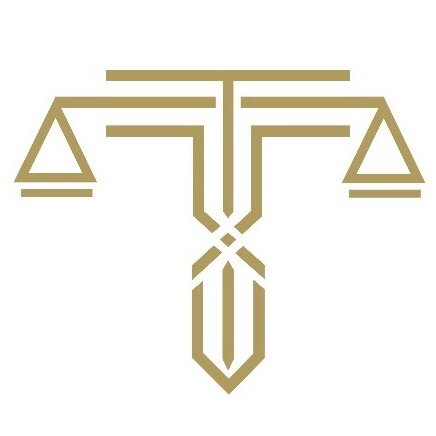Best Project Finance Lawyers in Khobar
Share your needs with us, get contacted by law firms.
Free. Takes 2 min.
List of the best lawyers in Khobar, Saudi Arabia
About Project Finance Law in Khobar, Saudi Arabia
Project Finance in Khobar, Saudi Arabia, is a specialized area of finance law that deals with the structuring and funding of large-scale infrastructure and industrial projects. These projects often include power plants, oil and gas facilities, airports, and public utilities. Project Finance allows the repayment of loans and other financing commitments to rely primarily on the project's cash flow, with the project's assets and rights often serving as collateral. In Khobar, a key city in the Eastern Province closely linked to the energy and industrial sectors, Project Finance is a vital enabler for both public and private investments. The legal environment in Saudi Arabia, shaped by Sharia principles, government regulations, and commercial practices, plays a crucial role in the success and risk management of such ventures.
Why You May Need a Lawyer
Engaging a lawyer during a Project Finance endeavor can protect your interests, reduce risk, and ensure compliance with local and international law. You may need legal assistance in situations such as:
- Drafting, negotiating, and reviewing loan agreements and project contracts
- Structuring Special Purpose Vehicles (SPVs) for the project
- Ensuring regulatory compliance with Saudi investment and licensing laws
- Conducting due diligence on project assets, land rights, and regulatory permits
- Resolving disputes among project participants or with government bodies
- Addressing Islamic finance requirements and Sharia compliance in financing arrangements
- Advising on risk allocation, security packages, and insurance requirements
- Managing issues related to foreign investment, currency controls, or tax matters
Having a lawyer experienced in Project Finance ensures that your project is structured legally, minimizing exposure to liabilities and maximizing project value.
Local Laws Overview
Project Finance in Khobar operates within the broader legal framework of Saudi Arabia, which is based on Sharia law and supplemented by royal decrees, implementing regulations, and the rules of regulatory authorities such as the Ministry of Investment (MISA) and the Saudi Central Bank (SAMA).
Key legal elements relevant to Project Finance include:
- Foreign Investment Regulations: The Ministry of Investment regulates foreign participation, granting licenses and setting ownership rights for foreign partners.
- Public-Private Partnership (PPP) Framework: Government projects may utilize PPP models subject to specific laws governing procurement, financing, and risk-sharing.
- Contract Law: Saudi contract law is rooted in Sharia, requiring clear, lawful, and enforceable agreements. Certain clauses common in international contracts, such as interest or penalties, may not be enforceable.
- Securities and Collateral: Collateral arrangements, mortgage of assets, and pledge agreements must comply with the relevant Saudi laws and may differ from common law practices.
- Dispute Resolution: Disputes often proceed through Saudi courts, although arbitration and alternative dispute resolution mechanisms are increasingly used, especially for international stakeholders.
- Environmental and Land Use Laws: Projects must comply with Saudi zoning, land use rights, and environmental regulations.
- Taxation: Project structures need to consider relevant taxes such as VAT, withholding tax, and zakat, alongside incentives for strategic investments.
Frequently Asked Questions
What is Project Finance and how is it different from traditional financing?
Project Finance is a method of funding in which lenders and investors rely on the project‘s cash flows for repayment, rather than the balance sheet of project sponsors. This structure is commonly used for large infrastructure or industrial projects in Khobar, offering a risk profile distinct from traditional corporate finance.
Can foreign investors participate in Project Finance in Khobar?
Yes, foreign investors can participate subject to Ministry of Investment licensing and compliance with Saudi foreign ownership regulations. Structuring and due diligence are key to successful participation.
Are Islamic finance options available for Project Finance in Khobar?
Yes, Islamic finance products such as sukuk, murabaha, and ijara are commonly used to align projects with Sharia principles, avoiding conventional interest-based facilities.
What types of projects are typically financed through Project Finance in Khobar?
Common projects include oil and gas installations, petrochemical plants, power and water facilities, transportation infrastructure, and public-private partnerships.
What legal structures are used for Project Finance in Saudi Arabia?
Special Purpose Vehicles (SPVs), joint ventures, and limited liability companies are often used to isolate project risk and define liability among project participants.
How are disputes resolved in Project Finance projects in Khobar?
Disputes may be resolved through the Saudi courts or by arbitration depending on the dispute resolution clause in the contract. International arbitration can be used if agreed by all parties.
What are the main regulatory authorities involved in Project Finance?
Key authorities include the Ministry of Investment, Saudi Central Bank, Ministry of Energy, Ministry of Finance, and sector-specific regulators overseeing utilities and infrastructure.
How is collateral handled in Project Finance transactions?
Collateral arrangements must conform to Saudi laws, which may differ from typical practices in common law countries. Legal counsel can ensure proper registration and enforceability of security interests.
Are there any tax incentives for Project Finance investments in Khobar?
Certain strategic sectors may benefit from tax incentives, including customs duty exemptions and favorable tax treatments, subject to government approval.
What are the most common legal risks in Project Finance in Saudi Arabia?
Common risks include regulatory changes, limitations on contract enforcement, challenges in land rights, Sharia compliance issues, and complexities in dispute resolution. Legal advice helps to anticipate and address these risks effectively.
Additional Resources
If you need more information or official guidance related to Project Finance in Khobar, consider consulting the following resources:
- Ministry of Investment (MISA) - licensing and foreign investment requirements
- Saudi Central Bank (SAMA) - guidance on financing and regulatory compliance
- Saudi Arabian Oil Company (Saudi Aramco) - information for energy sector projects
- Ministry of Energy and Ministry of Finance - oversight of public infrastructure and PPPs
- Eastern Province Chamber of Commerce and Industry - local business advice and networking
- International Finance Corporation (IFC) - support and publications on project finance best practices
- Legal associations and local law firms specializing in project finance and Saudi commercial law
Next Steps
If you are considering or are already involved in a Project Finance initiative in Khobar, Saudi Arabia, here’s how you can proceed:
- Gather detailed documentation about your prospective project, including business plans, investment structure, and partner information
- Identify your key objectives, potential risks, and compliance requirements
- Consult with a local lawyer or law firm experienced in Project Finance and Saudi law to review your plans and guide you through relevant legal procedures
- Reach out to local regulatory authorities or advisory bodies for licensing, sector guidance, or incentives programs
- Establish clear legal agreements and secure proper permits before making substantial financial commitments
Obtaining legal advice early in the project process can safeguard your investment, minimize risks, and facilitate a smoother path from planning through to successful completion in Khobar.
Lawzana helps you find the best lawyers and law firms in Khobar through a curated and pre-screened list of qualified legal professionals. Our platform offers rankings and detailed profiles of attorneys and law firms, allowing you to compare based on practice areas, including Project Finance, experience, and client feedback.
Each profile includes a description of the firm's areas of practice, client reviews, team members and partners, year of establishment, spoken languages, office locations, contact information, social media presence, and any published articles or resources. Most firms on our platform speak English and are experienced in both local and international legal matters.
Get a quote from top-rated law firms in Khobar, Saudi Arabia — quickly, securely, and without unnecessary hassle.
Disclaimer:
The information provided on this page is for general informational purposes only and does not constitute legal advice. While we strive to ensure the accuracy and relevance of the content, legal information may change over time, and interpretations of the law can vary. You should always consult with a qualified legal professional for advice specific to your situation.
We disclaim all liability for actions taken or not taken based on the content of this page. If you believe any information is incorrect or outdated, please contact us, and we will review and update it where appropriate.












